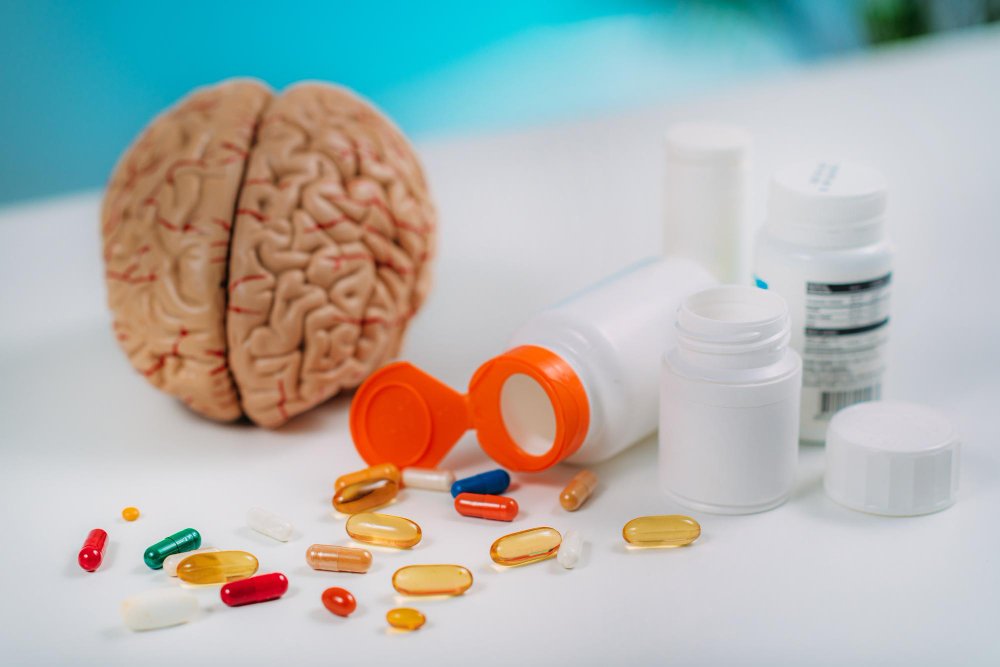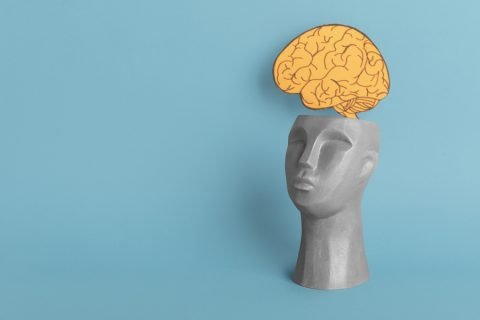Have you ever felt like your brain needed a little boost? You are not alone. In today’s fast-paced environment, many of us seek ways to improve our memory, focus, and overall cognitive performance. Brain pills have grown in popularity, claiming to be the secret to a sharper mind. However, with so many options available, it can be difficult to determine which ones work best.
This article delves deeply into the area of brain supplements, distinguishing fact from myth. We’ll look at the science behind these supplements, evaluate their possible advantages and hazards, and determine which ones are worth investigating.
Do Brain Supplements Work?
According to current research and consumer opinion, certain brain supplements appear to provide minor cognitive benefits, while others lack compelling proof. It’s critical to limit your expectations and recognise that supplements are unlikely to be a magical cure for memory loss or a quick path to genius.
What Are the Benefits and Risks of Brain Health Supplements?
Potential Benefits:
- Improved memory and focus
- Enhanced learning and cognitive function
- Reduced brain fog and fatigue
- Protection against age-related cognitive decline
Potential Risks:
- Side effects such as headaches, nausea, and insomnia
- Interactions with medications you’re already taking
- Limited scientific evidence for some supplements
- Wasting money on ineffective products
What Are Brain-Boosting Supplements? How Do They Work?
Brain-boosting supplements function differently depending on their ingredients. Some, such as omega-3 fatty acids, provide critical elements that promote brain cell health and function. Others, such as B vitamins, help turn food into energy, which the brain requires to function properly.
What Are the Disadvantages of Brain Supplements?
- Limited Regulation: The supplement industry is not as tightly regulated as prescription drugs. This means the quality and effectiveness of supplements can vary widely.
- Potential for Drug Interactions: Some supplements can interact with medications you’re already taking, leading to adverse effects.
- Unrealistic Expectations: Supplements are not a replacement for a healthy lifestyle. Diet, exercise, and sleep are crucial for optimal brain health.

What Are the Side Effects of Brain Support Supplements?
Common side effects of brain supplements include headaches, nausea, dizziness, and stomach discomfort. Typically, these are mild and resolve themselves. However, before taking any supplement, you should contact your doctor, especially if you have any preexisting health conditions.
What Is the Strongest Brain Supplement?
There’s no single “strongest” brain supplement. Effectiveness depends on individual needs and the specific ingredients in the formula. Some well-researched options include omega-3 fatty acids, B vitamins, and Lion’s mane mushroom.
What Is the Best Natural Brain Booster?
Natural brain boosters such as exercise, a healthy diet rich in fruits and vegetables, and adequate sleep are among the most effective strategies to improve cognitive function. These lifestyle adjustments are safe, effective, and provide several other health benefits.
Is Omega-3 Good for the Brain?
Yes! Omega-3 fatty acids, notably DHA and EPA, are necessary for brain function. According to studies, they may boost memory, learning, and focus while also helping to prevent against age-related cognitive decline.
What Supplements Improve the Brain?
Several supplements have shown promise in improving brain function:
- Omega-3 fatty acids: Support brain cell health and function.
- B vitamins: Play a crucial role in energy production for the brain.
- Vitamin D: May help protect against cognitive decline.
- Curcumin: Possesses anti-inflammatory properties that may benefit brain health.
- Lion’s mane mushroom: Early research suggests it may enhance memory and focus.

What Is the Best Supplement for Focus?
Supplements containing caffeine, L-theanine, and Bacopa monnieri have been studied for their potential to improve focus and concentration.
Which Capsule Is Best for Brain?
The “best” brain capsule is determined by your specific demands and goals. However, it is critical to select a reliable brand that contains high-quality components and undergoes third-party testing for purity and potency.
What Improves Brain Function?
Here are some methods to improve brain function that go beyond supplements:
- Regular Exercise: Physical activity increases blood flow to the brain and promotes the growth of new brain cells.
- Healthy Diet: Eating a diet rich in fruits, vegetables, and whole grains
- Quality Sleep: Getting enough sleep allows your brain to consolidate memories and remove toxins that can impair cognitive function.
- Brain Training: Engaging in activities like puzzles, learning a new language, or playing brain training games can help keep your mind sharp.
- Stress Management: Chronic stress can negatively impact brain function. Techniques like meditation, yoga, and spending time in nature can help reduce stress and improve cognitive health.
Do Brain Vitamins Really Work?
If you are deficient in any of the B vitamins, brain vitamins may be beneficial. However, for persons who already get enough vitamins from their diet, the benefits of brain-specific vitamin supplements are unclear
Are Brain Pills Safe?
The safety profile of brain bills differs according to their constituents. Some natural supplements, such as herbs and vitamins, are often well tolerated. Others, however, may interact with drugs or experience adverse consequences. Before using any brain pills, you should visit your doctor, especially if you have any pre-existing health concerns or are on prescription medications.
What Is the Best Drug to Improve Memory?
There is no single “best” drug for improving memory. Medication for memory loss is often used to treat specific illnesses such as Alzheimer’s. These drugs can help with symptoms but do not provide a cure.
What Are the Best Brain Supplements?
Here are some of the top-rated brain supplements, based on current research and user experiences:
- Omega-3 fatty acids: A well-researched option with strong evidence for cognitive benefits.
- B complex vitamins: Essential for energy production in the brain, especially for those with deficiencies.
- Lion’s mane mushroom: Early research suggests it may enhance focus and memory.
- Curcumin: Possesses anti-inflammatory properties that may benefit brain health.
- L-theanine: May improve focus and concentration, especially when combined with caffeine.
Remember: It’s always best to discuss brain supplements with your doctor before starting them. They can help you determine if a supplement is right for you and recommend a safe and effective option.
What Supplements Increase Blood Flow to the Brain?
Supplements such as Ginkgo biloba and vinpocetine have been investigated for their ability to enhance blood flow to the brain. However, the evidence supporting their efficacy is conflicting. It is critical to consult your doctor before using these supplements, as they may interfere with other medications.
What Are the Supplements That Are Good for Brain and Health?
Many of the supplements mentioned earlier, like omega-3s, B vitamins, and curcumin, offer benefits for both brain health and overall health.
Are There Any Trusted Supplements for Neurons That Work?
While research is ongoing, some supplements, such as Lion’s Mane mushroom and phosphatidylserine, show promise in improving neuronal health and function. However, more research is required to validate their efficacy.
The answer is maybe. Some brain supplements show promise in studies, but results can be mixed. They might offer mild cognitive benefits, but don’t expect a magic bullet for memory or intelligence.
Natural options like omega-3 fatty acids, B vitamins, and Lion’s mane mushroom are generally well-tolerated, but always check with your doctor first.
There isn’t enough long-term data on all brain supplements. It’s important to consult your doctor to discuss potential risks and interactions with medications you’re already taking.
It varies. Some, like omega-3s, might have subtle effects over time, while others might work quicker but require consistent use.
Absolutely! Exercise, a balanced diet rich in fruits, vegetables, and whole grains, and quality sleep are excellent natural brain boosters.
Focus on a brain-healthy diet! Include plenty of fruits, vegetables, whole grains, and healthy fats like those found in fish and avocado. Limit processed foods, sugar, and unhealthy fats.
Talk to your doctor! They can help assess your needs and recommend a safe and suitable supplement based on your individual situation.
Not generally, but consult your doctor before giving brain supplements to children or teenagers.
Yes, some supplements can interact with medications. Always talk to your doctor before starting any new supplement, especially if you take medication.
It depends on the supplement. Some are best taken with food, while others might disrupt sleep if taken at night. Ask your doctor for guidance on the specific supplement you choose.




